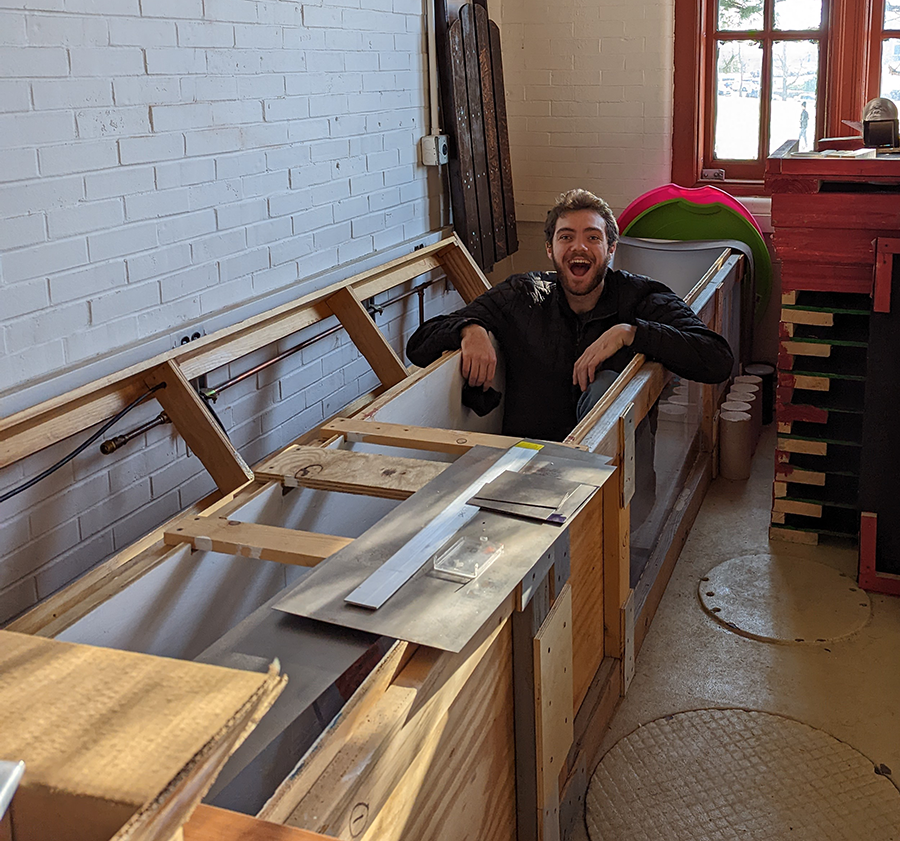Small particles research reveals benefits of interaction
Kelby Kramer said that interacting with members of Gerald Wang’s research team was one of the best aspects of his undergraduate research experience.
Kelby Kramer, who graduated in December, 2022, has always known that his ultimate career ambition is to work as a coastal engineer. Kramer, who has worked as a lifeguard and is an avid surfer, wants to work on policies related to sea level rise and help ensure there is a protective infrastructure for coastlines.
As a student he was involved in three research projects. He constructed a wave tank to study coastal erosion protection methods. He worked on a project to validate different satellite remote sensing techniques for glacier mapping. And he spent two years working with Gerald Wang on a pandemic related project.

Kelby Kramer inside the wave tank he constructed to study coastal erosion protection methods.
Wang, an assistant professor in civil and environmental engineering, applied his background in small scale particle interaction to a pedestrian study on social distancing. Using a program that was developed to study particle interaction, such as how fluids move through nano tubes in a desalination plant, Kramer ran simulations on how desire for social distancing influenced pedestrian movement.
“It was a cool idea to use molecule modeling software for pedestrian dynamics,” said Kramer.
Although it was less related to his career goals, Kramer says he gained a lot from being involved in the project. He was introduced to computing that he wouldn’t have been exposed to otherwise. He says the parallel computing methods he used are helping him in the work he is doing now with the Army Corps of Engineers. He says he is also far more aware of the power of computers to solve problems. In coastal engineering, for example, satellites are used for observation, but it’s computers that must analyze all of that data.
It was a cool idea to use molecule modeling software for pedestrian dynamics.
Kelby Kramer, 2022 alum
Having worked on the project gave him the opportunity to be a part of both a project and a team throughout the entire research process from idea to a final published paper.
But he says what he liked the best was being a part of a team.
“I really enjoyed the community aspect,” said Kramer, who stays in touch with some of the research team members and follows the work they’re doing now.
Kramer intends to pursue a master’s and possibly a doctorate degree.
